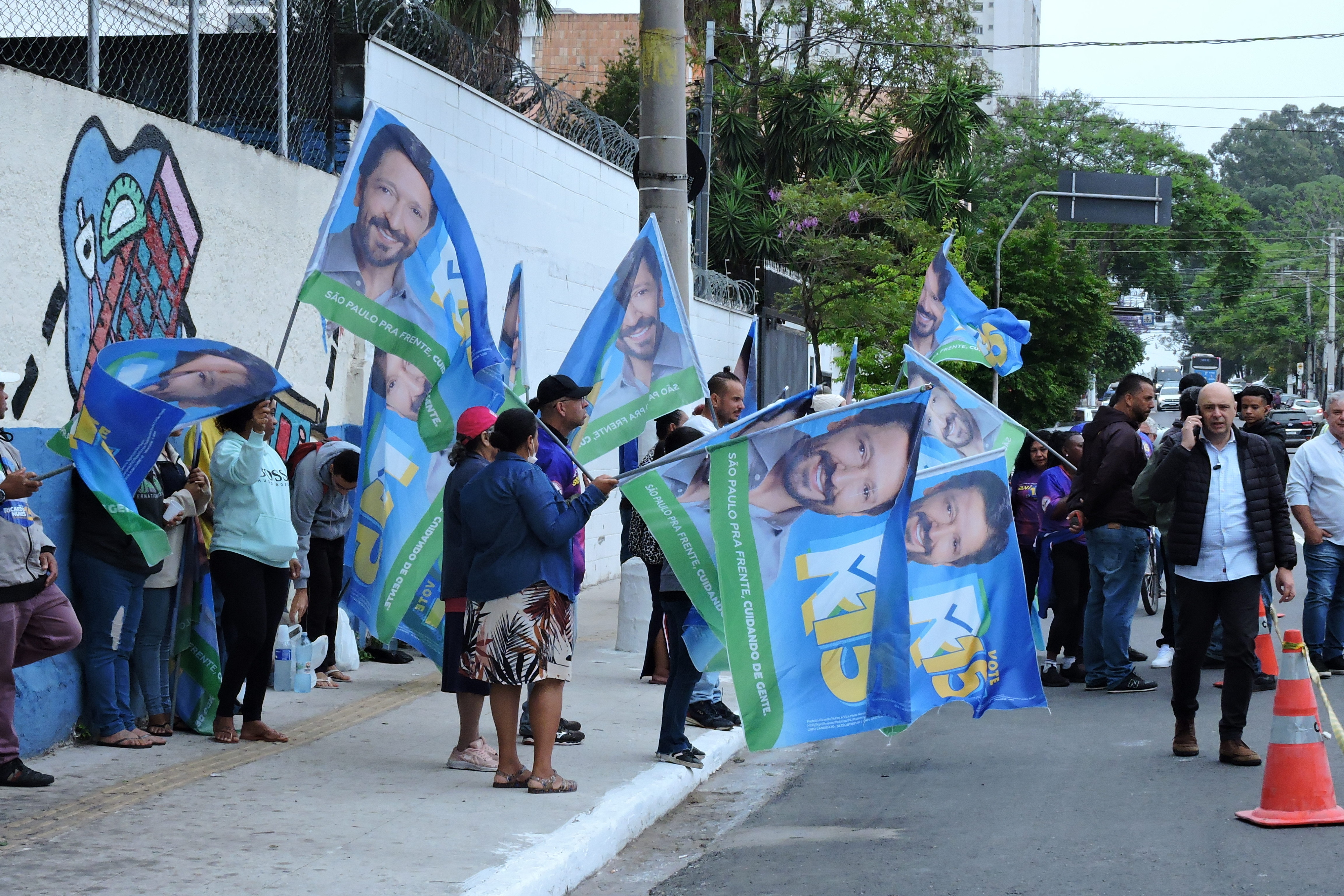Municipal elections in Brazil
A thermometer for the country's future

São Paulo, the most populous city and the country's economic powerhouse, was one of the most hotly contested areas in these local elections.
© picture alliance / ZUMAPRESS.com | Leandro ChemalleThe second and decisive round of the municipal elections in Brazil took place last Sunday. The first round was held on 6 October. 34 million Brazilians went to the polls to vote in run-off elections between the two most successful candidates in the 51 cities with more than 200,000 inhabitants in which none of the candidates had achieved more than 50% in the first round. Why are these local elections important for the future of Brazil?
A game of balances with ‘Centrão’ as the winner
The ‘Centrão’, an informal coalition of parties that takes a pragmatic, sometimes flexible stance between left-wing and right-wing ideologies, has emerged victorious from the municipal elections. Parties such as the Social Democratic Party (PSD) and the Brazilian Democratic Movement (MDB) were able to secure city halls in numerous cities. São Paulo, the most populous city and the country's economic powerhouse, was one of the most hotly contested areas in these local elections. In the run-off election, the incumbent mayor Ricardo Nunes, who was supported by the MDB and could indirectly count on the support of Bolsonaro, won by a clear margin.
The importance of the ‘Centrão’ lies in its ability to balance the national political landscape and play a mediating and negotiating role between extreme forces, especially in a country with a high degree of polarisation at national level between President Lula da Silva and his predecessor Jair Bolsonaro.
Challenges for the left in Brazil
This advance of the ‘Centrão’ represents a challenge for Lula's government, which must strengthen its alliances in order to maintain popular support. The ability of these Centrão parties to adapt to regional and local demands allows them to win votes in areas where the left has difficulties, especially in the large cities of the south-east and south of the country.
Thus, despite the support of President Lula, the Workers' Party (PT) and its left-wing allies failed to strengthen their base in these elections. In several large cities, the PT did not achieve the expected results, and in the few large cities where the party itself had candidates running, it was unable to achieve any significant victories. This result reflects the challenge facing the Brazilian left, which depends to a large extent on the person of Lula. However, his appeal has waned considerably and there are no new hopefuls in sight, as these elections have drastically demonstrated.
Bolsonaro's influence and the positioning of the right
The right, led by Bolsonaro and his Liberal Party (PL, now almost devoid of true liberals), continues to resonate with voters, particularly on issues such as security, the economy and the fight against corruption. In addition, there is widespread anti-PT sentiment due to dissatisfaction with the government's limited successes. As a result, the PL and other right-wing parties have managed to maintain a strong presence in the major cities.
The emergence of a more moderate and pragmatic right is one of the characteristic elements of these elections. Figures such as Tarcísio de Freitas, governor of São Paulo, have emerged as potential leaders of a more moderate right that seeks to distance itself from the polarising rhetoric of Bolsonaro and shows respect for the institutions of the rule of law and democracy. This kind of moderate leadership could pave the way for a centre-right platform for the next presidential elections in 2026 that emancipates itself from Bolsonaro's toxic influence.
Partido Novo makes significant gains
The Partido Novo has made significant gains in São Paulo and other strategically important cities, quadrupling its share of the vote. It has thus established itself as a liberal option in a polarised political environment. Of all the smaller parties, it achieved the strongest growth. With its agenda centred on transparency, efficiency and economic liberalism, Partido Novo is raising the hopes of Brazilians who are longing for a change in governance and turning away from ideological extremes, which could make Partido Novo an important player in the next national elections in 2026.
A thermometer for the future
The Brazilian municipal elections allow for a scenario in which the polarisation between Lula and Bolsonaro slowly loses importance and parties and candidates from the democratic centre-right spectrum with less extreme positions are rewarded by voters. The combination of conservatism and pragmatism could change the country's political landscape.
The left faces the challenge of diversifying its leadership and winning over voters outside its traditional base. Following its strong growth, the liberal alternative offered by the Partido Novo is a refreshing hope for the 2026 elections, showing that there is potential for a centrist liberal programme party in Brazil, beyond the political extremes and traditional clientelist parties without a substantive core.
Brazil in the global spotlight
With the upcoming G20 summit in Rio de Janeiro in November and the BRICS presidency and COP30 in Belém in the coming year, Brazil will be in the global spotlight over the next 12 months. The Brazilian agenda will focus on climate justice, reducing inequalities, strengthening South-South cooperation and reforming the global governance of international organisations.
Given the political challenges facing Brazil and the definition of its role on the international stage, the impact of these elections goes far beyond municipal borders and will shape the future of the country's politics in the run-up to the next presidential elections in 2026. For this reason, it is positive that these elections - despite the strong fragmentation of the Brazilian party system - have contributed to a consolidation of the political landscape.

